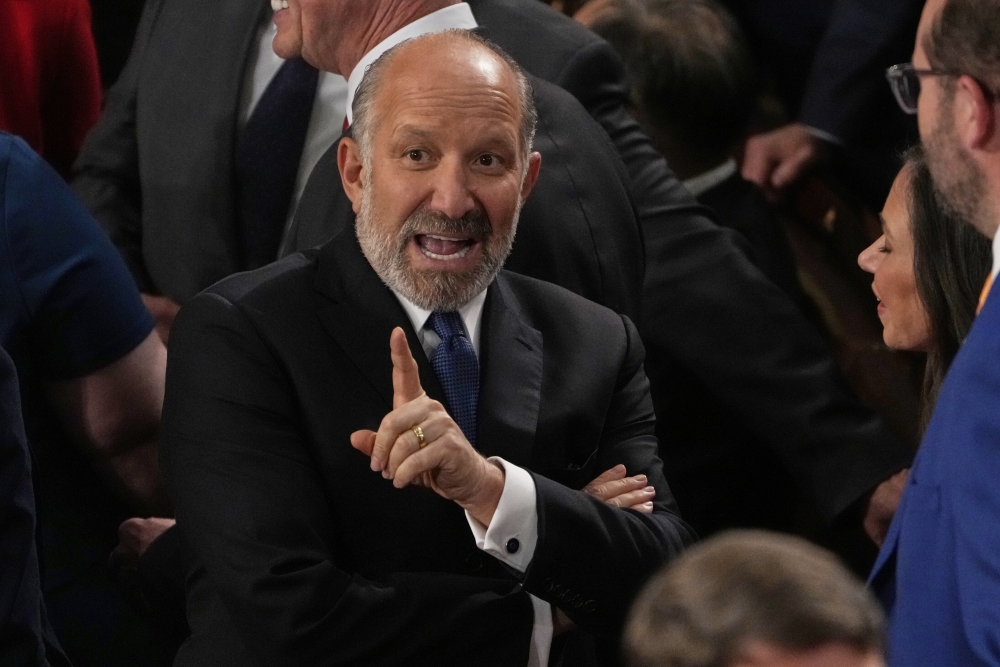Questioned about the looming trade war less than a fortnight ago, Rachel Reeves sounded upbeat about the chances of Britain dodging the brunt of the damage.Pointing to a promise by Sir Keir Starmer to get an economic deal with Donald Trump when the two men met at the White House, the Chancellor said: “Our economies are closely intertwined, and now we are working with our partners and friends in the US in their administration to try and get that agreement ahead of 2 April. We are working hard to get an agreement by then.
”Now that the President’s so-called “liberation day” has come around, there is no deal. Starmer was forced to admit on Monday that tariffs from the US would be hitting Britain after all, even though negotiations on removing them continue retrospectively.if(window.

adverts) { window.adverts.addToArray({"pos": "inread-hb-ros-inews"}); }Jonathan Reynolds, the Business Secretary who has been leading the talks, promised in Tuesday’s Cabinet meeting to adopt a “calm, cool-headed, and pragmatic approach”.
But the brutal truth is that the Government’s tactic of hugging Trump close and hoping for special treatment has not worked so far.Blindsided by TrumpThe biggest turning point came last Wednesday, when the White House announced from nowhere that it was putting an additional 25 per cent tariff on all cars and car parts brought into the US.The UK did not appear to have any advance warning of the move, and officials who thought their talks had been going well were shaken by the announcement, which came with no carve-outs for Britain or any other country.
if(window.adverts) { window.adverts.
addToArray({"pos": "mpu_mobile_l1"}); }if(window.adverts) { window.adverts.
addToArray({"pos": "mpu_tablet_l1"}); }From that point onwards, the conversation in Whitehall shifted: the focus was no longer on getting a deal in time to stop the tariffs but on making sure they did not remain in effect for too long. An invitation by Starmer for Trump to visit the UK in June is said to have been rebuffed by the President, sending the Prime Minister back to the drawing board.US President Donald Trump greets British Prime Minister Keir Starmer at the entrance of the West Wing of the White House in Washington, DC, on February 27, 2025.
(Photo: Getty)Tech tax on the tableThe US administration has made it clear that it is strongly opposed to the digital services tax, which applies a small levy to the largest tech firms operating in Britain – most of which are American – and brings in £800m a year for the Exchequer.Reeves has firmly ruled out scrapping it altogether, telling a press conference last week: “We believe that companies should pay tax in the countries in which they operate.”But she has opened the door to watering down the tax, perhaps by lowering its headline rate while bringing more companies into its scope.
It remains unclear what concessions will be enough for the White House.Technology remains a major part of the negotiations: Peter Mandelson, the UK’s ambassador to Washington, is pushing the idea of closer cooperation on the digital economy as a way of getting a win for both sides, according to Whitehall sources.Tesla CEO Elon Musk wears a ‘Trump Was Right About Everything!’ hat while attending a cabinet meeting at the White House on 24 March.
(Photo: Carlos Barria/ Reuters)Row on free speechA further spanner was thrown into the works over the weekend as the US Government lashed out at Britain’s free-speech laws.The State Department put out a statement warning that it was “concerned about freedom of expression in the United Kingdom” after an anti-abortion campaigner was prosecuted for breaching laws which prevent people from demonstrating near clinics.if(window.
adverts) { window.adverts.addToArray({"pos": "mpu_mobile_l2"}); }if(window.
adverts) { window.adverts.addToArray({"pos": "mpu_tablet_l2"}); }While British Government insiders insist the issue has not specifically come up in trade talks, concern about the UK’s approach to free speech has been a theme of the Trump administration, with Vice President JD Vance particularly outspoken.
Farmers ready to revoltAnother stumbling block is the desire of the American negotiators to include Britain’s agricultural policy in trade talks.While the US side is understood to have conceded that the most controversial issues, such as animal welfare standards, must remain off the table – they would only come into play as part of a comprehensive free-trade agreement – they want the UK to accept more access for their farm goods.This would prompt a furious backlash from the British farming industry, which is already warning of a flood of cheap products making it harder to compete.
What happens nextThe fundamental rule in dealing with Trump is that he is both unpredictable and – in some ways – fixed in his ideas.One reason the UK has failed to stop tariffs in advance, an official told The Sunday Times, is raw politics: “There’s a symbolic angle to it. From Trump’s perspective, they said we’re going to put tariffs on everyone, and that does mean everyone.
”But insiders have vowed to keep working on a deal in the coming days, rather than hitting back at the US with reciprocal tariffs.if(window.adverts) { window.
adverts.addToArray({"pos": "mpu_mobile_l3"}); }if(window.adverts) { window.
adverts.addToArray({"pos": "mpu_tablet_l3"}); }Even if no agreement is immediately forthcoming, it could be several weeks before it becomes clear that the negotiations have permanently broken down – at which point Starmer would have to decide whether or not to retaliate..
Politics

Inside last-minute scramble to save UK from Trump’s tariffs – and why it failed

It was only over the past week that ministers realised they would be unable to stop US tariffs from coming in to effect on what Donald Trump calls 'liberation day'















